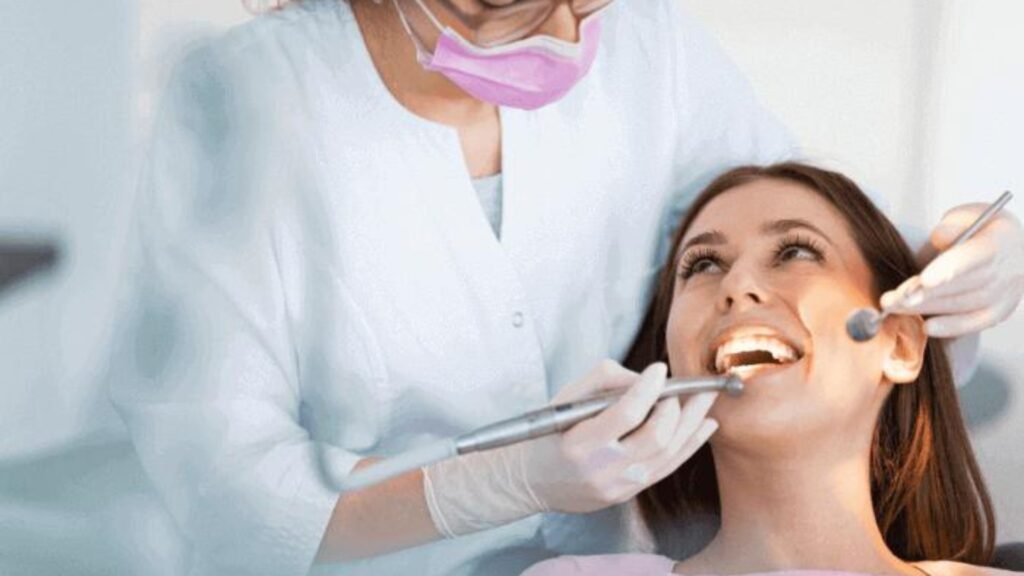Dental health maintenance is essential for ensuring strong teeth and gums and preventing dental problems. A healthy smile not only boosts confidence but also plays a crucial role in overall well-being. By adopting consistent oral hygiene practices and making mindful lifestyle choices, you can maintain good dental health throughout your life. In this article, we’ll outline some of the best practices for dental health maintenance, which are easy to follow and highly effective.
Why Dental Health Maintenance is Important
Dental health maintenance is important because it helps prevent cavities, gum disease, bad breath, and other oral health issues. Poor dental health can lead to serious health problems, including infections, heart disease, and diabetes. Regular dental care also helps detect early signs of oral cancer and other dental conditions, allowing for timely treatment. By taking good care of your teeth and gums, you can enjoy a lifetime of healthy smiles and avoid costly dental procedures.

1. Brush Your Teeth Twice a Day
One of the most basic yet effective practices for dental health maintenance is brushing your teeth twice a day. Use a soft-bristled toothbrush and fluoride toothpaste to remove plaque and food particles from your teeth. Brush for at least two minutes, covering all surfaces of your teeth, including the fronts, backs, and chewing surfaces. Brushing in the morning and before bed helps keep your teeth clean and free from harmful bacteria that can cause tooth decay and gum disease.
2. Floss Daily to Remove Plaque Between Teeth
Flossing daily is another essential habit for dental health maintenance. Flossing removes plaque and food debris from between your teeth and along the gumline, areas that your toothbrush cannot reach. Use about 18 inches of dental floss and gently slide it between each tooth, curving it around the base of each tooth. Flossing helps prevent cavities and gum disease by keeping these hard-to-reach areas clean and free from harmful bacteria.
3. Use Mouthwash for Extra Protection
Using mouthwash is a great way to enhance your dental health maintenance routine. Mouthwash helps rinse away food particles and bacteria, reduces plaque, and freshens your breath. Choose an antimicrobial or fluoride mouthwash that targets plaque and strengthens your teeth. Rinse for about 30 seconds after brushing and flossing to maximize its effectiveness. Mouthwash provides an extra layer of protection against cavities and gum disease.
4. Eat a Balanced Diet for Strong Teeth
A balanced diet is crucial for dental health maintenance. Foods rich in vitamins and minerals, such as calcium, phosphorus, and vitamin D, help strengthen your teeth and bones. Include plenty of fruits, vegetables, dairy products, lean proteins, and whole grains in your diet. Limit sugary snacks and drinks, as sugar promotes the growth of bacteria that cause tooth decay. Drinking plenty of water also helps wash away food particles and keeps your mouth hydrated, supporting overall oral health.
5. Avoid Tobacco and Limit Alcohol Consumption
Avoiding tobacco and limiting alcohol consumption are important practices for dental health maintenance. Smoking and tobacco use can stain your teeth, cause bad breath, and increase the risk of gum disease and oral cancer. Alcohol can dry out your mouth, leading to reduced saliva production, which is essential for washing away food particles and bacteria. By avoiding these habits, you can protect your teeth and gums and reduce the risk of serious dental problems.
Play the Best Real Money Casino Games
If you love the thrill of gambling, explore real money casino games at King Johnnie. With an extensive game selection and exciting rewards, you can enjoy a top-tier gaming adventure.
6. Visit Your Dentist Regularly
Regular dental check-ups are a key component of dental health maintenance. Schedule dental visits at least twice a year for professional cleanings and exams. Your dentist can detect early signs of dental issues, such as cavities, gum disease, or oral cancer, and provide timely treatment. Professional cleanings remove plaque and tartar buildup that brushing and flossing alone cannot eliminate. Regular dental visits help maintain your oral health and prevent potential problems.
7. Replace Your Toothbrush Regularly
Replacing your toothbrush regularly is essential for effective dental health maintenance. Over time, toothbrush bristles become frayed and less effective at cleaning your teeth. Replace your toothbrush every three to four months or sooner if the bristles are worn out. Using a fresh toothbrush ensures optimal cleaning and helps maintain good oral hygiene. An electric toothbrush can also
Conclusion
Dental health maintenance is essential for preventing dental problems and maintaining a healthy smile. By brushing and flossing daily, using mouthwash, and eating a balanced diet, you can protect your teeth and gums. Avoiding tobacco, limiting alcohol, and visiting your dentist regularly further support your oral health. Simple habits like replacing your toothbrush, wearing a mouthguard, and limiting snacking also play a crucial role in dental health. Incorporating these best practices into your daily routine will help you maintain strong, healthy teeth and a beautiful smile for years to come.

